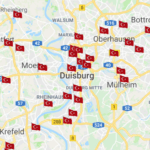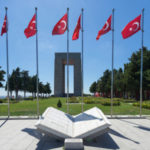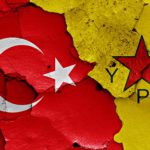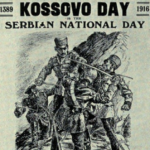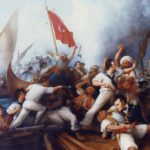First Published May 2018
Turkish increasing influence and power over the Turks and the Muslims in Europe is the single most imminent threat to European security
The European establishment is looking the other way, while the Turks are slowly increasing their foothold in Europe. the EU prefers to mock Putin rather than confront Tayyip Erdoğan and the AKP. Meanwhile the Turkish state and especially its ministry of the religious affairs uses the Turkish diaspora in Europe to acquire political power on the continent. There is no separation between state and religion in Turkey. The religious organization Diyanet that operates under the Turkish ministry of religious affairs has about 2000 outposts in Europe. The Gefira team located about 1300 of them, mostly mosques. There is no other political or religious organization in Europe with leaders from outside it that has such a widespread network across the European Union, and whose ideology is alien to the native Europeans.
Diyanet in Europe.

